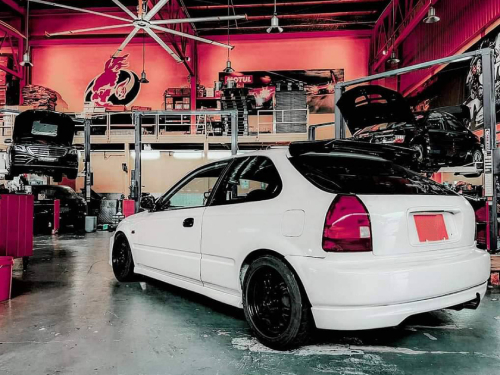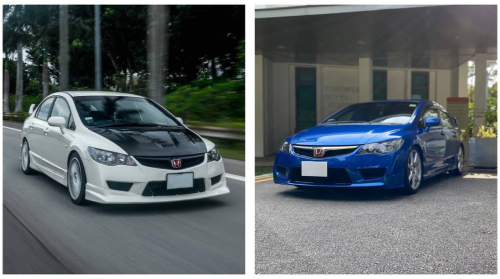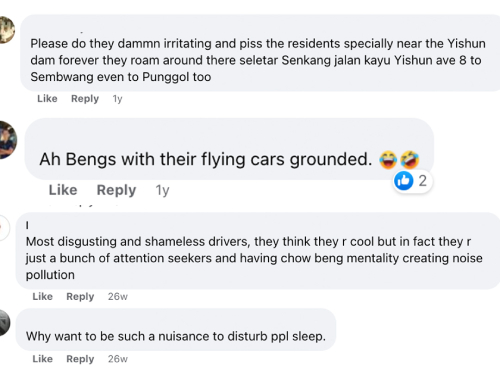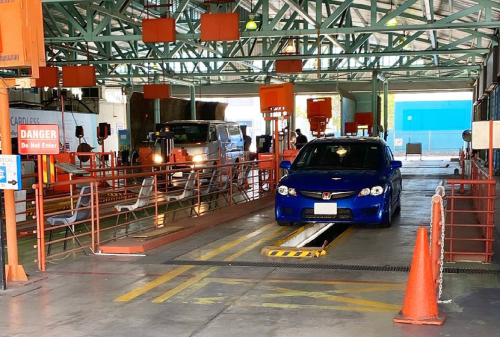After watching The Fast and The Furious: Tokyo Drift at 7 years old, Edmund Gui’s passion for modified Japanese Domestic Market (JDM) cars was ignited. Before he had even passed his driving test, he bought his first JDM car, a Honda Civic EK4 at 18 years old with his own savings.

Edmund, now 22, then introduced JDM cars to his friend, Logan Kwan, also 22. Since then, Logan has taken an interest in modified JDM cars as he enjoys “the speed and the sound [of the car’s exhaust]”.
According to the Land Transport Authority (LTA), vehicle modifications refer to changing any system or part of one’s vehicle.
Installing aftermarket vehicle modifications are legal in Singapore, as long as the modifications made comply with the LTA’s guidelines and are certified by LTA and the vehicle manufacturer.
Legal modifications include swapping a car’s engine to another of the same type, changing the exhaust systems of a car to suit the vehicle model while complying with noise and exhaust emission standards, and installing supercharger and/or turbochargers that are suitable for the vehicle.
Modifying cars in Singapore is costly, with each modification ranging from $200 for a new Air Intake System to $7,000 for a modified engine.
Over the last three months, both Edmund and Logan have spent between $10,000 and $15,000 modifying their new cars — a Honda Civic Type R FD2R.

In Singapore, modified car drivers are stereotyped as gangsters or as “ah bengs” due to their cars’ loud exhausts and their tendency to speed.
“[To the public], modified car drivers must be speeding dangerously at 3 am, cutting in and out of traffic. So we must be road hazards,” said Edmund.
While both Edmund and Logan’s JDM cars are “legally modified with sound and exhaust certification”, they often get pulled over by LTA officers and traffic police (TP) officers on the road.
Edmund recalled an instance when he was pulled over by a TP officer, who assumed he was speeding and wanted to impound his car. Fortunately, he was released after the officer checked Edmund’s dash camera and found no evidence of him speeding.
“It is difficult for LTA [officers] to differentiate which modified cars are illegal or legal because both have [loud engines],” said Edmund.
Besides these frequent run-ins with law enforcers, owners of modified cars are also frequent targets of online backlash.
Many netizens have flooded online forums with complaints against modified car owners, calling them dangerous drivers and noise polluters.
An example of such a forum is the Respect Others And Drive Safe (ROADS.SG) site, where one can find many dashcam footage of reckless driving.

Aloysious Fong, 64, founder of ROADS.SG, said that driving on the road becomes risky when car owners modify their cars with cheaper components that are illegal and not suited for the car model.
“Cars have to operate with complimentary parts and applications to keep [their] integrity and physics to operate safely,” he added.
Even with legal modifications, modified cars have to be inspected by LTA yearly. The LTA officers will conduct a thorough check of the car’s components and alignment to determine whether the car is roadworthy.

Both Edmund and Logan make sure they comply with the regulations. But they aren’t going to quit their hobby because of negative public sentiments.
“We can’t satisfy everyone,” said Logan.
Edmund added that while there are “black sheep” – modified car drivers who speed on the road – “they do not represent us as car enthusiasts [as a] whole”.
“We love our cars, [so] we drive especially carefully. We also don’t want anyone to get hurt,” he said. “Those people who are not paying attention [on] the road are the ones causing [modified car owners] to have such a bad reputation.”
Proofread By: Ruth Loo Hui En and Tay Yi Ling Stacey
